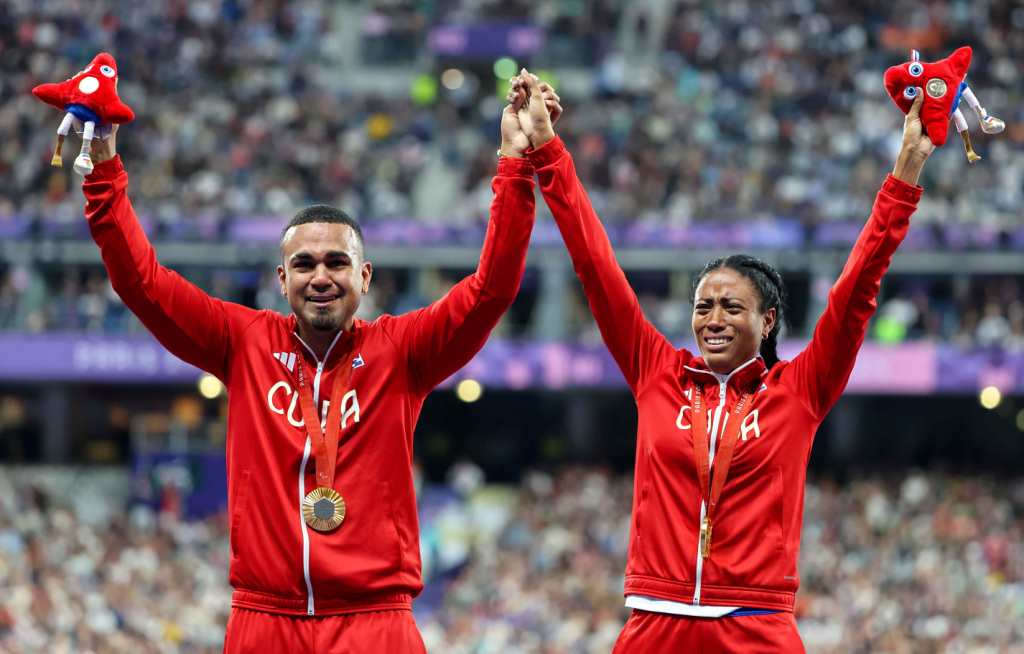By Boris Luis Cabrera.
In a corner of sports history, where souls shine brighter than bodies, the name of this woman with a visual disability that guides her towards unimaginable horizons, illuminated the Paris 2024 Paralympic Games and was acknowledged with the vote of 40 media outlets to win easily in her category. It was on the Stade de France track where, with each stride, she broke the chains of prejudice and wove a new narrative for sport. Her victory was not only against the clock, but against a world that so often forgets to include the invisible.
Her crowns, won in the 100-, 200- and 400-meter races, guided by her inseparable Yuniol Kindelan, were a perfect dance, a symphony of confidence and courage.
Every time she crossed the finish line, humanity also triumphed, learning to look beyond physical barriers. Her speed does not reside only in her legs, but in her ability to inspire, to transform the looks of others and to show that limits are only lies that we tell ourselves.
Omara’s acknowledgement above conventional athletes marks a milestone in the history of Latin American sports. This gesture of inclusion is not a gift or a concession, but the fair recognition of an athlete who has made her life a hymn of struggle and victory.
She does not compete in a separate world; she is an essential part of universal sport, where sweat and passion do not distinguish.
Omara Durand is more than a Paralympic champion: she is a symbol of equality in sport, a guiding light towards a future where differences are celebrated and barriers are broken down.
Her achievements are not only medals, but an echo that resonates in the souls of all those who believe that sport, like life, is for everyone. Her legacy, like her races, is endless and that is why she has a secure place among the immortals of sport.
jg/mem/blc










